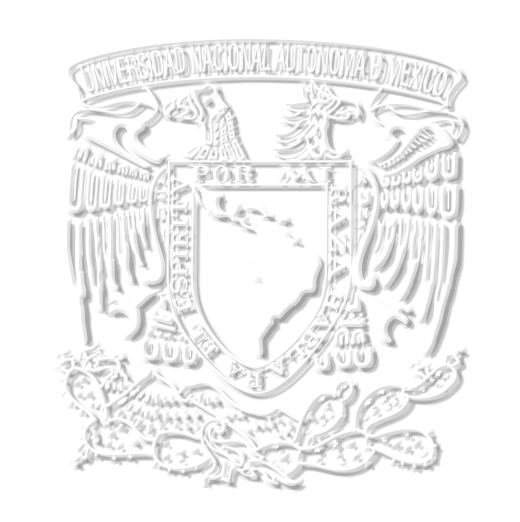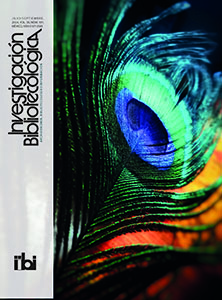Abstract
The Catholic Church was the most influential institution of the Spanish Empire due to religion permeating all institutions and modelling the character and life of all inhabitants to form good subjects for the king through education and worship. The objective is to explain the presence and use of liturgical and paraliturgical books within the Royal Mining Seminary of New Spain as part of future mining experts’ civic and moral education utilizing documents kept at the Palace of Mining. The methodology is merely historical-bibliographical and resorts to primary sources and liturgy theory for proper interpretation of the data. As a result, the study demonstrates that, despite being an Enlightened scientific institution, religion also pervaded the Royal Mining Seminary through the mentioned bibliographic repertoire, which were books found in every New Spain institution and that are imperative to know because they are kept in our libraries with historical collections.
References
Álvarez Márquez, María del Carmen. 1992. El mundo del libro en la iglesia catedral de Sevilla en el siglo XVI. Sevilla: Diputación Provincial.
Álvarez Márquez, María del Carmen. 2000. El libro manuscrito en Sevilla (siglo XVI). Sevilla: Área de Cultura y Fiestas Mayorales, Ayuntamiento de Sevilla. Asensio Palacios, Juan Carlos. 2008. El canto gregoriano: historia, liturgia y formas. Madrid: Alianza Editorial.
Asensio Palacios, Juan Carlos. 2009. “De la liturgia al canto gregoriano”. En Historia de la música en España e Hispanoamérica. Volumen 1. De los orígenes hasta c. 1470, coordinado por María del Carmen Gómez Muntané, 21-76. Madrid: Fondo de Cultura Económica.
Becerra Ramírez, Isaac. 2023. Historia de la Librería Coral de la Iglesia Catedral Metropolitana de México durante el siglo XVI. Ciudad de México: Instituto de Investigaciones Bibliotecológicas y de la Información, Universidad Nacional Autónoma de México.
Bonomo, Francesco. 2023. Introducción al estudio de los libros litúrgicos. Barcelona: Centre de Pastoral Litúrgica.
Cattin, Giulio. 1999. Historia de la música 2. El medioevo. Primera parte. Madrid: Consejo Nacional de la Cultura y las Artes.
Cervantes de Salazar, Francisco. 2001. México en 1554. Tres diálogos latinos. México, Distrito Federal: Universidad Nacional Autónoma de México.
Documentos. Acervo Histórico del Palacio de Minería, Ciudad de México.
Escamilla González, Francisco Omar. 2008. “Origen de los libros de matemáticas en el Real Seminario de Minería de México: análisis de un inventario de 1799”. Mathesis 3 (2): 239-280.
Fernández Catón, José María. 1993. “El libro litúrgico hasta el Concilio de Trento”. En Historia ilustrada del libro español. Los manuscritos, editado por Hipólito Escobar Sobrino y Manuel Carrión Gútiez, 401-33. Madrid: Fundación Germán Sánchez Ruipérez; Ediciones Pirámide.
Fernández de Oviedo, Gonzalo. 1851. Historia general y natural de las Indias, islas y tierra-firme del mar océano. Madrid: Imprenta de la Real Academia de la Historia.
Fernández López, Juana Inés, Jorge René González, María del Consuelo Maquivar, José Abel Ramos Soriano y Lourdes Villafuerte García. 2015. Vocabulario eclesiástico novohispano. Seminario de Historia de las Mentalidades. México, Distrito Federal: Instituto Nacional de Antropología e Historia.
Flores Clair, Eduardo. 2000. Minería, educación y sociedad. El Colegio de Minería, 1774-1821. México: Instituto Nacional de Antropología e Historia.
Folsom, Cassian. 2023. Los libros litúrgicos del rito romano. Una guía para el estudio de su tipología e historia. Barcelona: Centre de Pastoral Litúrgica.
Gálvez, Delfina. 2010. Isabel la Católica. La mítica reina que forjó una España grande y poderosa, unificada bajo el reino de Castilla. México, Distrito Federal: L. D. Books.
López Carral, Alicia. 2022. “El libro litúrgico y la imprenta musical en España hasta 1520”. Tesis de doctorado, Universidad Complutense de Madrid. https://core.ac.uk/download/580470756.pdf
Luque Alcaide, Elisa. 1970. La educación en Nueva España en el siglo XVIII. Sevilla: Escuela de Estudios Hispano-Americanos de Sevilla. http://hdl.handle.net/10261/276981
Muriel, Josefina, y Luis Lledías. 2009. La música en las instituciones femeninas novohispanas. México, Distrito Federal: Instituto de Investigaciones Históricas, Universidad Nacional Autónoma de México; Universidad del Claustro de Sor Juana; Fundación Carmen Romano de López-Portillo.
Ortiz, Mario. 2015. La musa y la melopea. La música en el mundo conventual, la vida y el pensamiento de Sor Juana Inés de la Cruz. México, Distrito Federal: Universidad del Claustro de Sor Juana.
Osorio Romero, Ignacio. 1986. Historia de las bibliotecas novohispanas. México, Distrito Federal: Secretaría de Educación Pública, Dirección General de Bibliotecas.
Real Tribunal de Minería de la Nueva España. 1783. Reales ordenanzas para la dirección, régimen y gobierno del importante cuerpo de la minería de Nueva España, y de su Real Tribunal General. De orden de su magestad. Madrid: Imprenta de Joaquín Ibarra.
Santa Cruz Castillo, Ruth Lizbeth. 2017. “¿Formando músicos?: la educación de los niños en la Catedral de México durante el siglo XVIII”. Tesis de licenciatura, Universidad Nacional Autónoma de México.
Seguí Trobat, Gabriel. 2014. Iniciación a las fuentes de la liturgia romana. Los libros litúrgicos romanos anteriores al Concilio de Trento. Barcelona: Centre de Pastoral Litúrgica.
Stevenson, Robert. 1971. Music in México: The Only Complete History of Mexican Music from Aztec Times to Present with Numerous Musical Examples. Nueva York: Apollo Editions.
Authors:
- They must sent the publication authorization letter to Investigación Bibliotecológica: archivonomía, bibliotecología e información.
- They can share the submission with the scientific community in the following ways:
- As teaching support material
- As the basis for lectures in academic conferences
- Self-archiving in academic repositories.
- Dissemination in academic networks.
- Posting to author’s blogs and personal websites
These allowances shall remain in effect as long as the conditions of use of the contents of the journal are duly observed pursuant to the Creative Commons:Attribution-NonCommercial-NoDerivatives 4.0 license that it holds. DOI links for download the full text of published papers are provided for the last three uses.
Self-archiving policy
For self-archiving, authors must comply with the following
a) Acknowledge the copyright held by the journal Investigación Bibliotecológica: archivonomía, bibliotecología e información.
b) Establish a link to the original version of the paper on the journal page, using, for example, the DOI.
c) Disseminate the final version published in the journal.
Licensing of contents
The journal Investigación Bibliotecológica: archivonomía, bibliotecología e información allows access and use of its contents pursuant to the Creative Commons license: Attribution- Non-commercial-NoDerivatives 4.0.

Investigación Bibliotecológica: archivonomía, bibliotecología e información by Universidad Nacional Autónoma de México is licensed under a Creative Commons Attribution-NonCommercial-NoDerivatives 4.0 Internacional License.
Creado a partir de la obra en http://rev-ib.unam.mx/ib.
This means that contents can only be read and shared as long as the authorship of the work is acknowledged and cited. The work shall not be exploited for commercial ends nor shall it been modified.
Limitation of liability
The journal is not liable for academic fraud or plagiarism committed by authors, nor for the intellectual criteria they employ. Similarly, the journal shall not be liable for the services offered through third party hyperlinks contained in papers submitted by authors.
In support of this position, the journal provides the Author’s Duties notice at the following link: Responsibilities of authors.
The director or editor of the journal shall notify authors in the event it migrates the contents of the journal’s official website to a distinct IP or domain.








